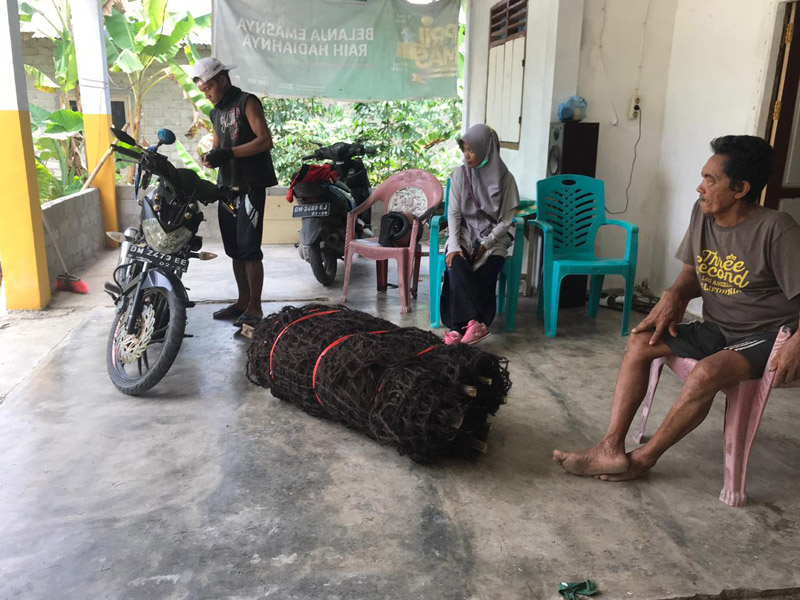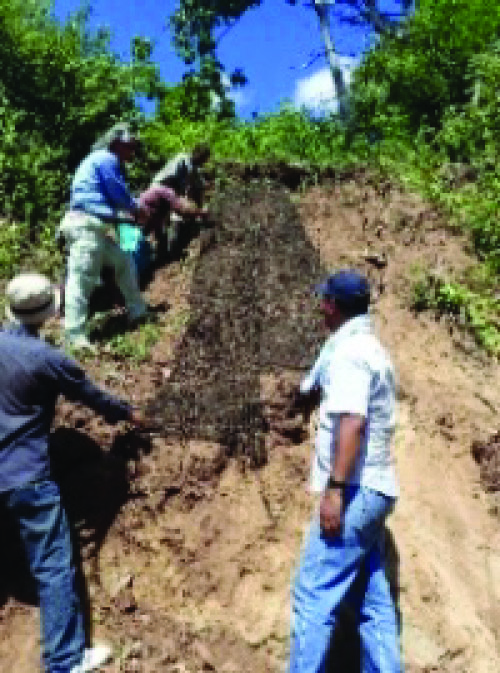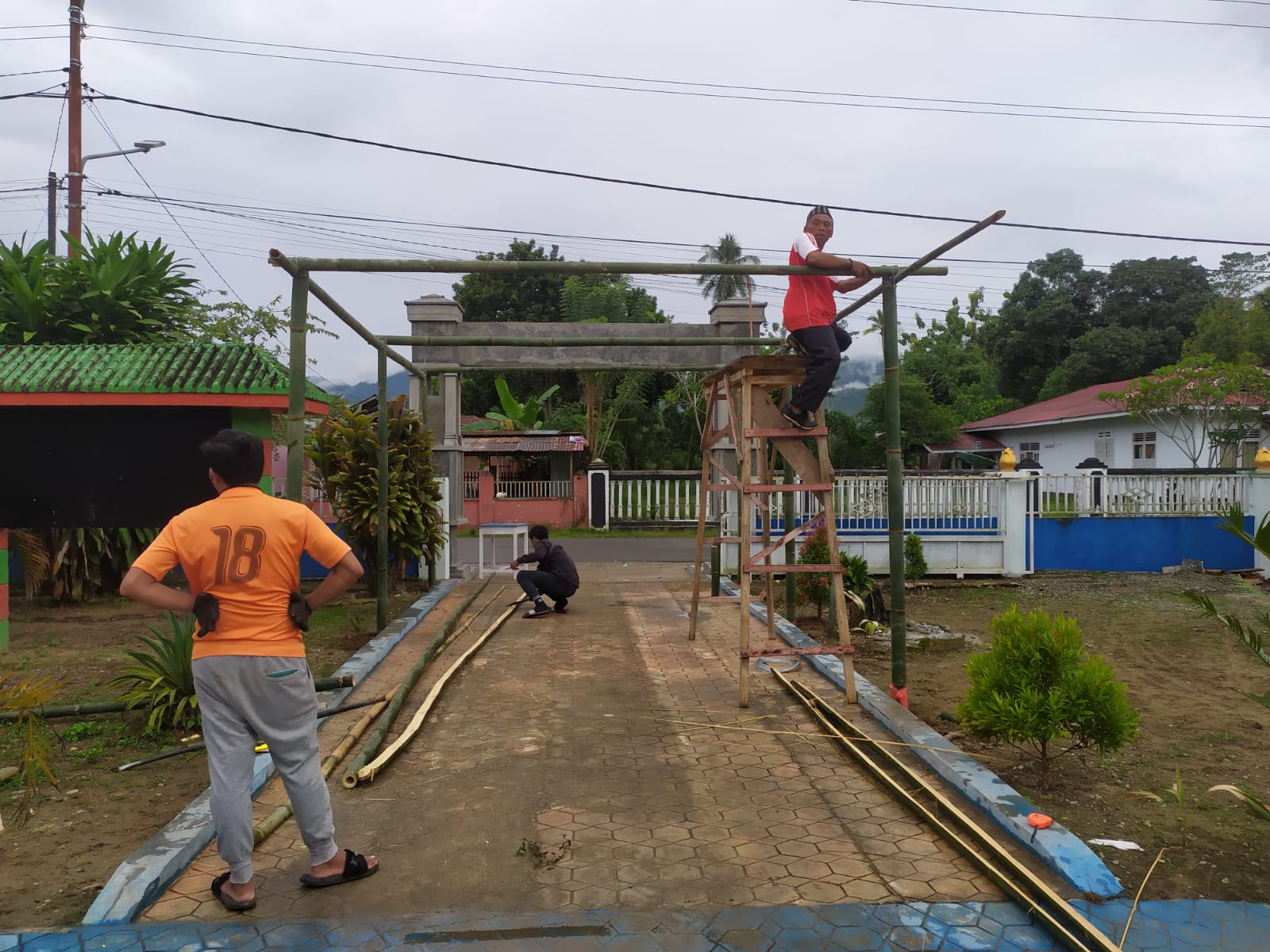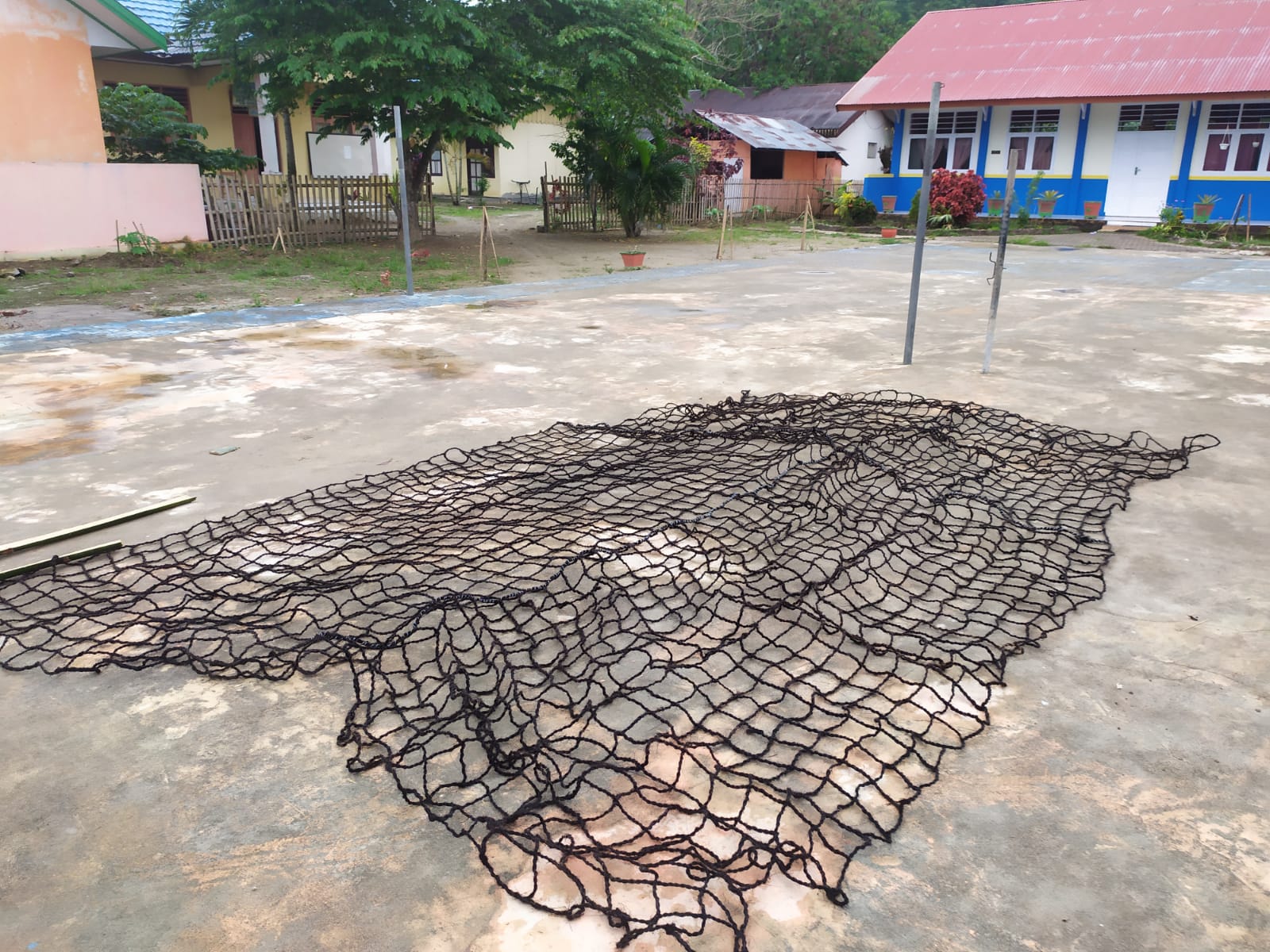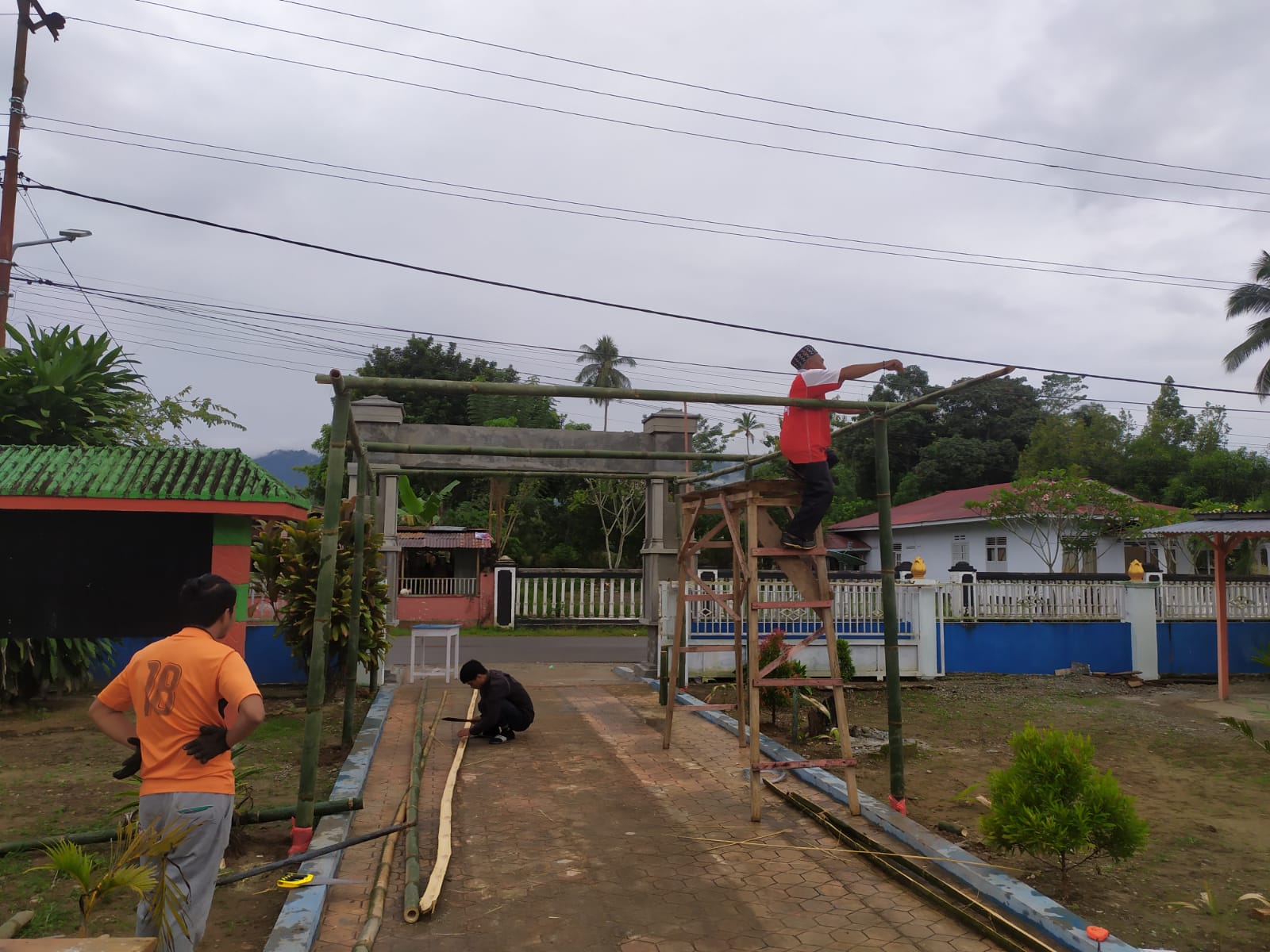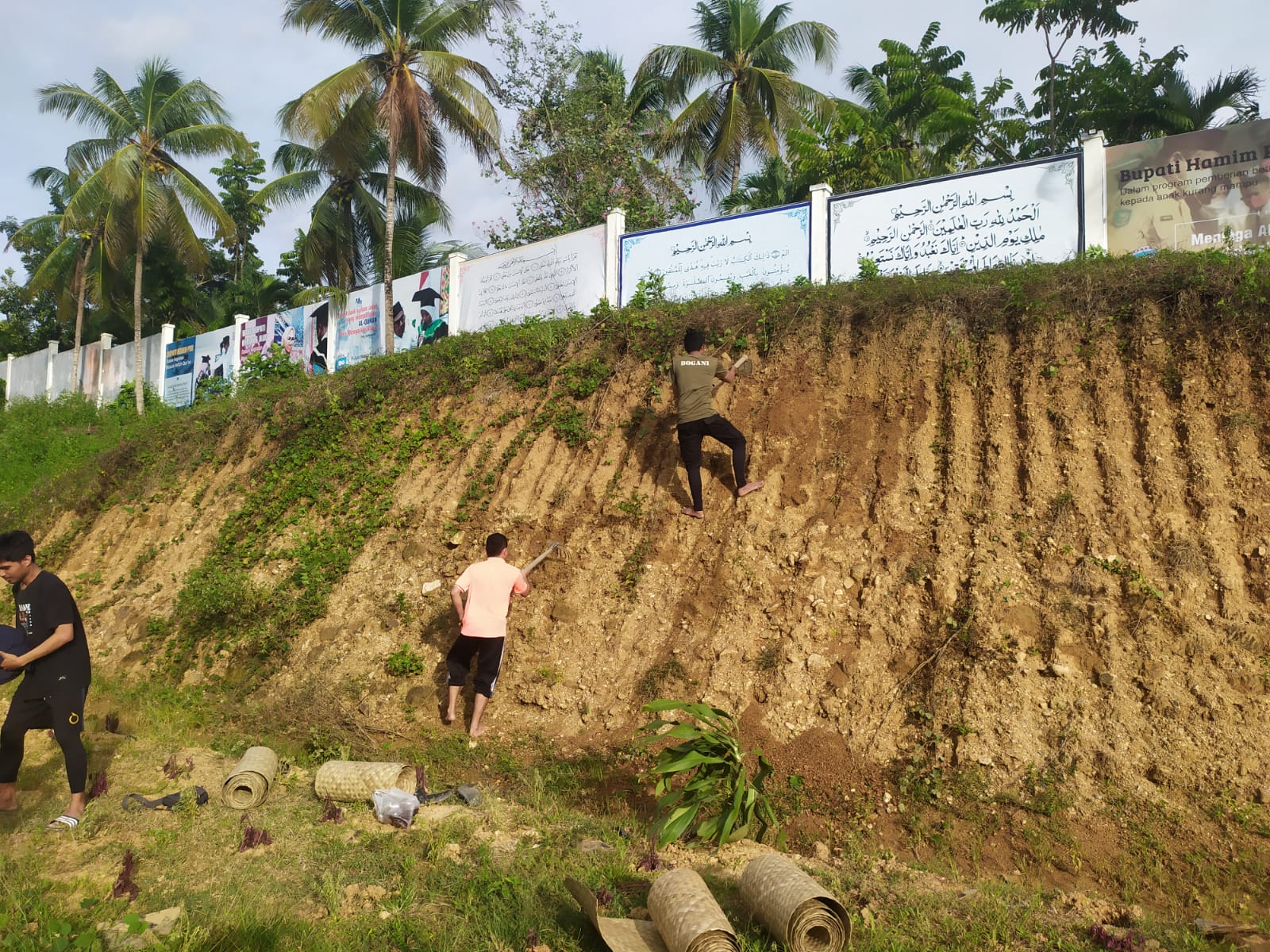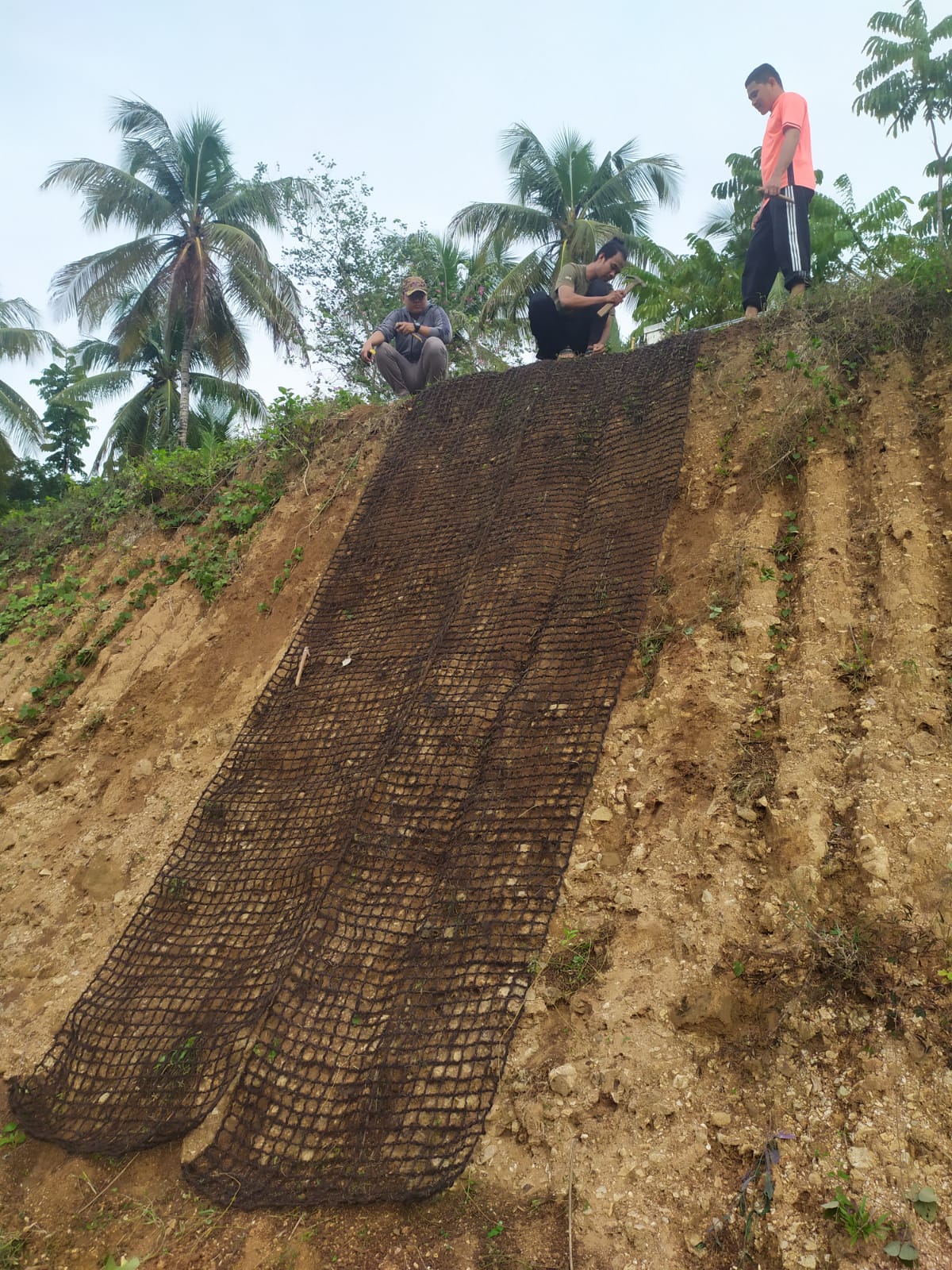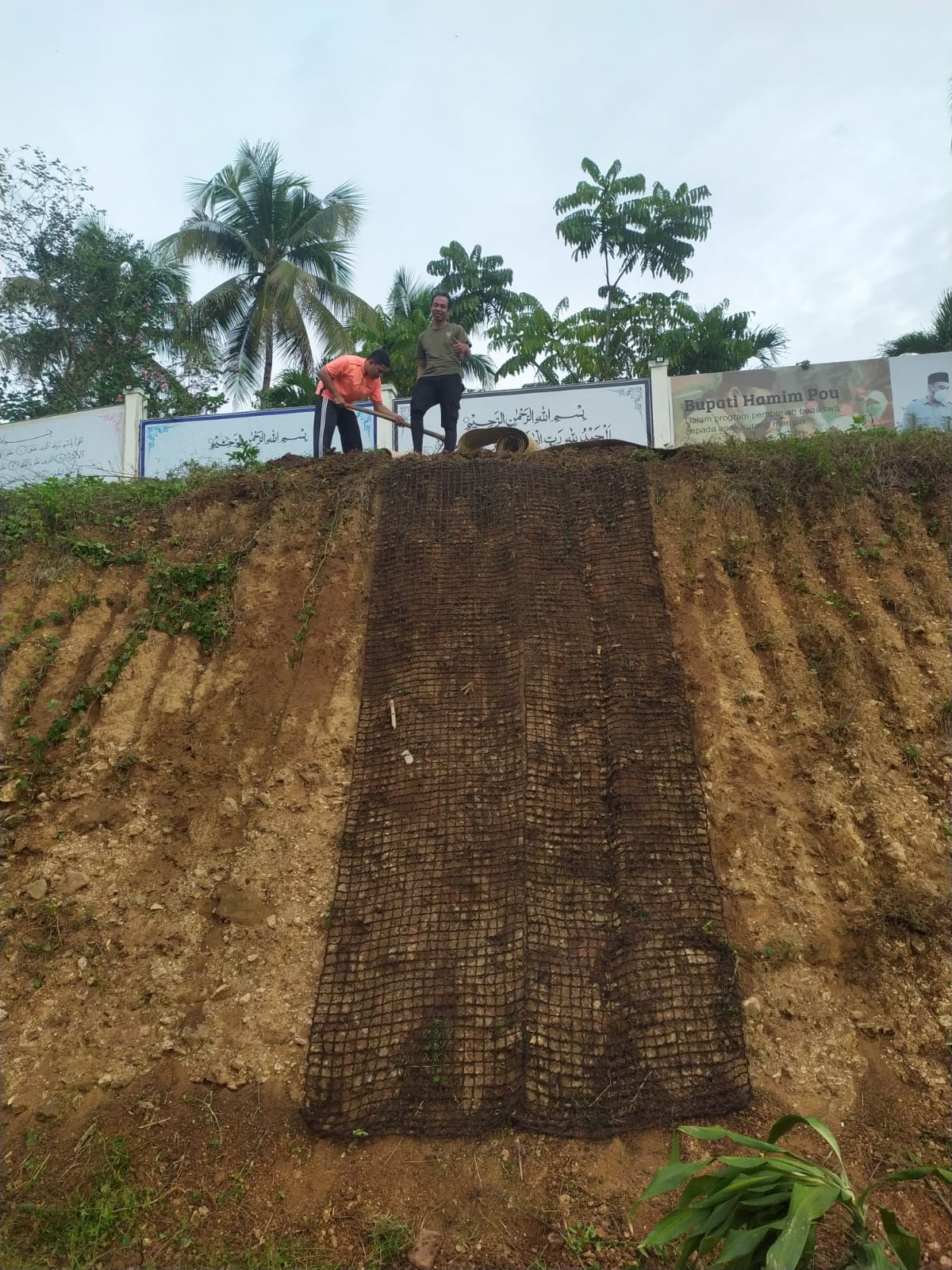Natural Fiber Research Group
Background of the Research
In this natural fiber research group, we are currently collaborating with local people of Bone Bolango Regency who have indigenous knowledge (such as the knowledge of creating a traditional net with the fibers of the sugar palm stalks around them), officers of the local government (Bone Bolango Regency), the researchers of SRIREP and State University of Gorontalo, and the private sector such as ESPECMIC Co., Lt. in order to develop a sustainable new industry which will also help to reduce the poverty problem. Currently, in West Tulabolo Village, the villagers, including those who work in the mine, have started the Moopiya Group, and work together with us to manufacture goods using the Sugar Palm.
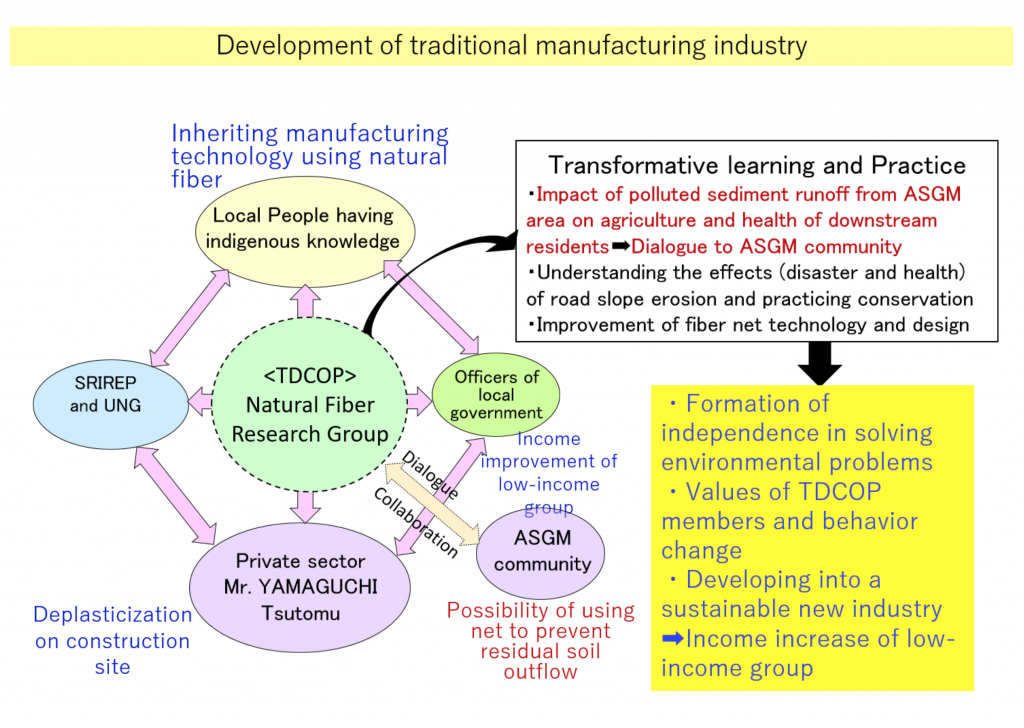
The world is now aiming to move away from the use of plastic and is shifting towards the use of natural fibers. We are working together with Bone Bolango Regency and Gorontalo State University to examine potential sales routes and uses for these Sugar Palm nets. There are plans for them to be used both inside of Indonesia and in other countries to prevent landslides and sediment runoff. Moreover, we will also communicate with the Artisanal and Small-Scale Gold Mining (ASGM) community about the possibility of using the net to prevent the residual soil outflow.
- Learning of the history, method, and design of the natural fibers
- Engaging the dialogue with local people on the usefulness of the natural fibers
- Identifying the technical and design issues related to sugar palm fiber net
- Reveal whether the activities of TDCOP will directly lead to the sustainable development of the traditional manufacturing industry and its successor
- Elucidating how the effects of TDCOP formation are transmitted to the society
- Co-creation of new design development, market development, and improvement of natural fiber products
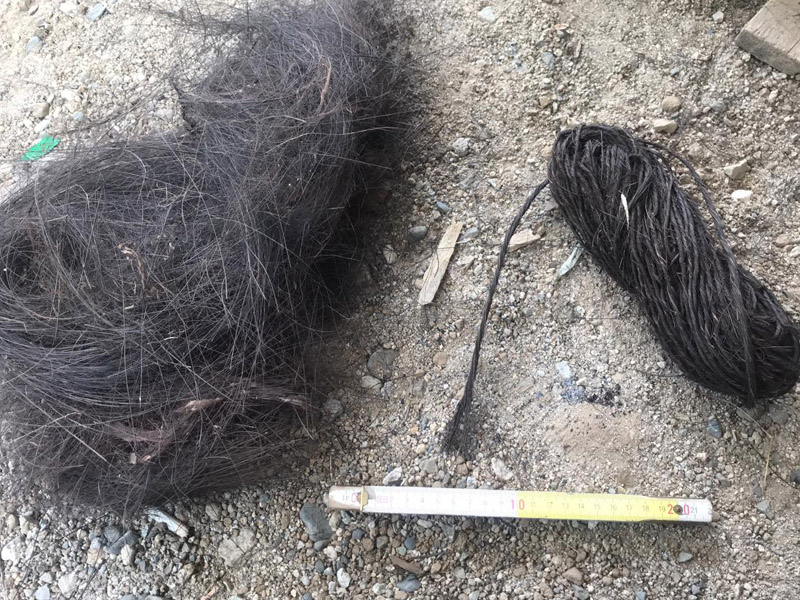
Sugar palm fibers, the tools to create the netting, and the finished net. 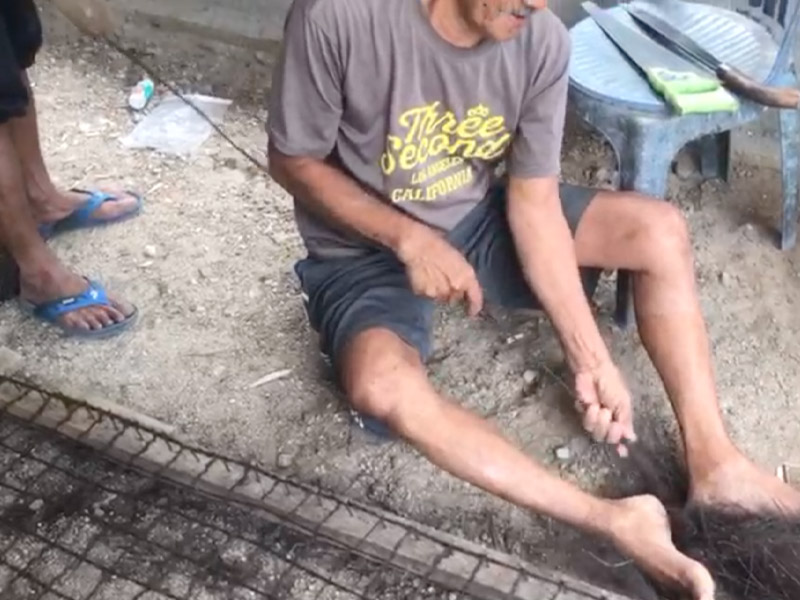
Hand-making the nets from Sugar Palm fibers. 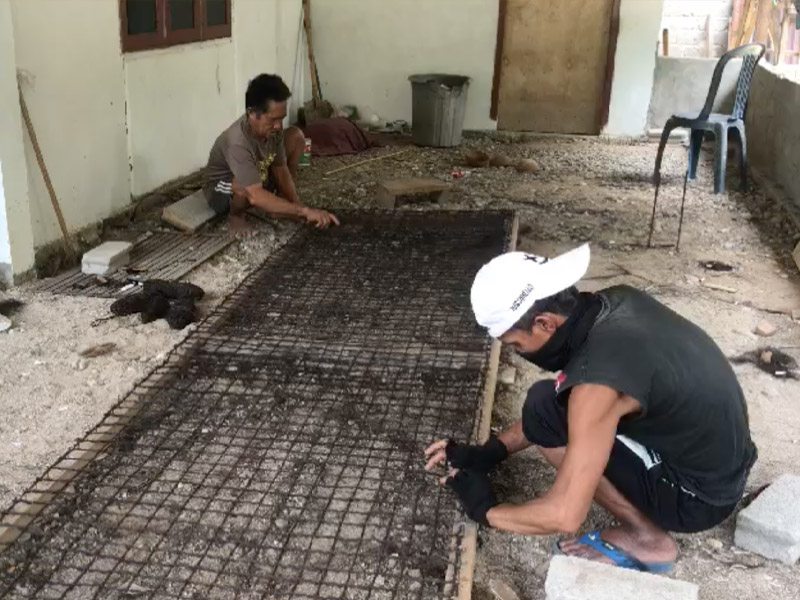
The netting is made from weaving Sugar Palm fibers together. The work is done by hand and takes some time, but these nets are stronger and more resilient than convention plant fiber netting.
Towards a Mercury-Free Society
The gold mining work, which uses mercury, in Gorontalo is beginning to shift towards a new kind of work that uses natural fibers.
The goal of the SRIREP Project of the Research Institute for Humanity and Nature is to identify a way to resolve the problem of mercury pollution from ASGM -the larger context of the poverty of the people in that region. Our project members will continue to work together with the locals to putting this solution into practice.
Our Mission
Why are we involved in net-making using the fibers of the sugar palm in a rural area of Indonesia? The answer to this question comes from an understanding of the daily lives and livelihood of the people who live there.
We want them to realize that escaping poverty by risking their lives with illegal gold mining is not the way things need to be.
We want to show them that there are new possibilities in the future of their children.
Our Progress
January 2022
As of January 2022, the stakeholder agreed to give the name “Dunula Jaring Kehidupan” for this TDCOP’s group ” which literally means “life from sugar palm nets”.
February 2022
As of February 2022, the key stakeholders involved in this TDCOP are from the following three villages: Tolango, Ambara, and Batudaa Pantai. Moreover, stakeholders from Tamboo village will also join in the future.
A workshop named “Transformative Learning Seminar on Plastic Pollution” was conducted on 19 Feb 2022 in order to reduce the use of plastic materials in the region.
20 sheets of nets made by 3 groups mentioned above have arrived in Japan (2/28), and they had been sent to ESPEC Co., Ltd. After that, ESPEC Co. Ltd will distribute them to some schools, companies, etc. There are 60 sheets of nets in total to be sent to Japan by the end of March.
April 2022
On April 19, 2022, Mr. Tsutomu Yamaguchi, Chief of the Nagoya Office of ESPEC MESPEC Co., Ltd., visited the Research Institute for Humanity and Nature (RIHN) and conducted a trial installation of natural fiber nets at RIHN’s entrance driveway. Professor Masayuki Sakakibara, the leader of the SRIREP Project, and members observed and participated in the activities. This trial installation roughly covered 1m & 30 cm in height and 5m & 30cm in width.
Professor Masayuki Sakakibara said that he planned to replace the plastic nets now put beside the RIHN entrance with these eco-friendly natural fiber nets in the future. This is due to the fact that plastic nets may be hazardous to the environment, particularly microplastic contamination, he said.
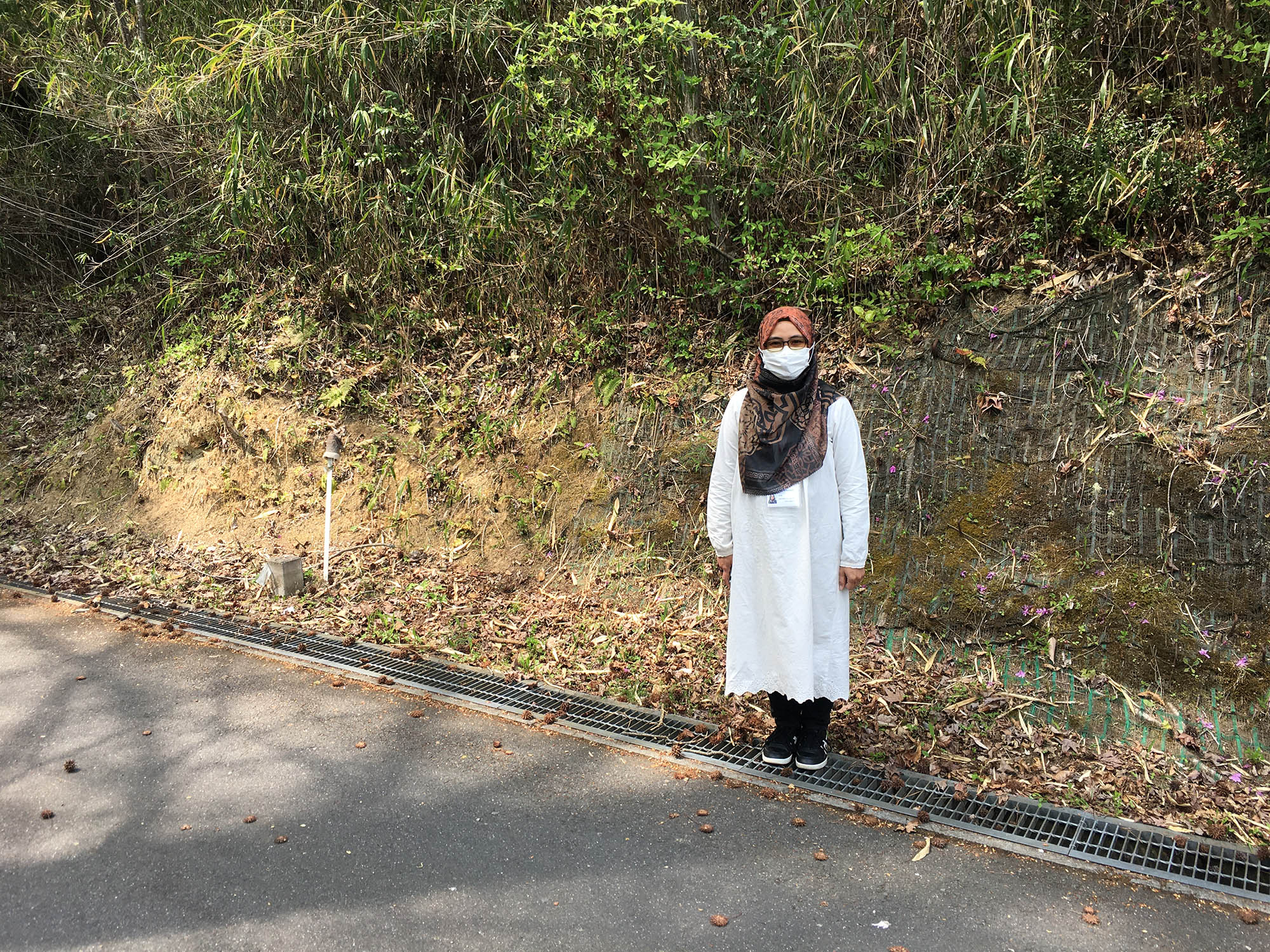
Before the installation of natural fiber net 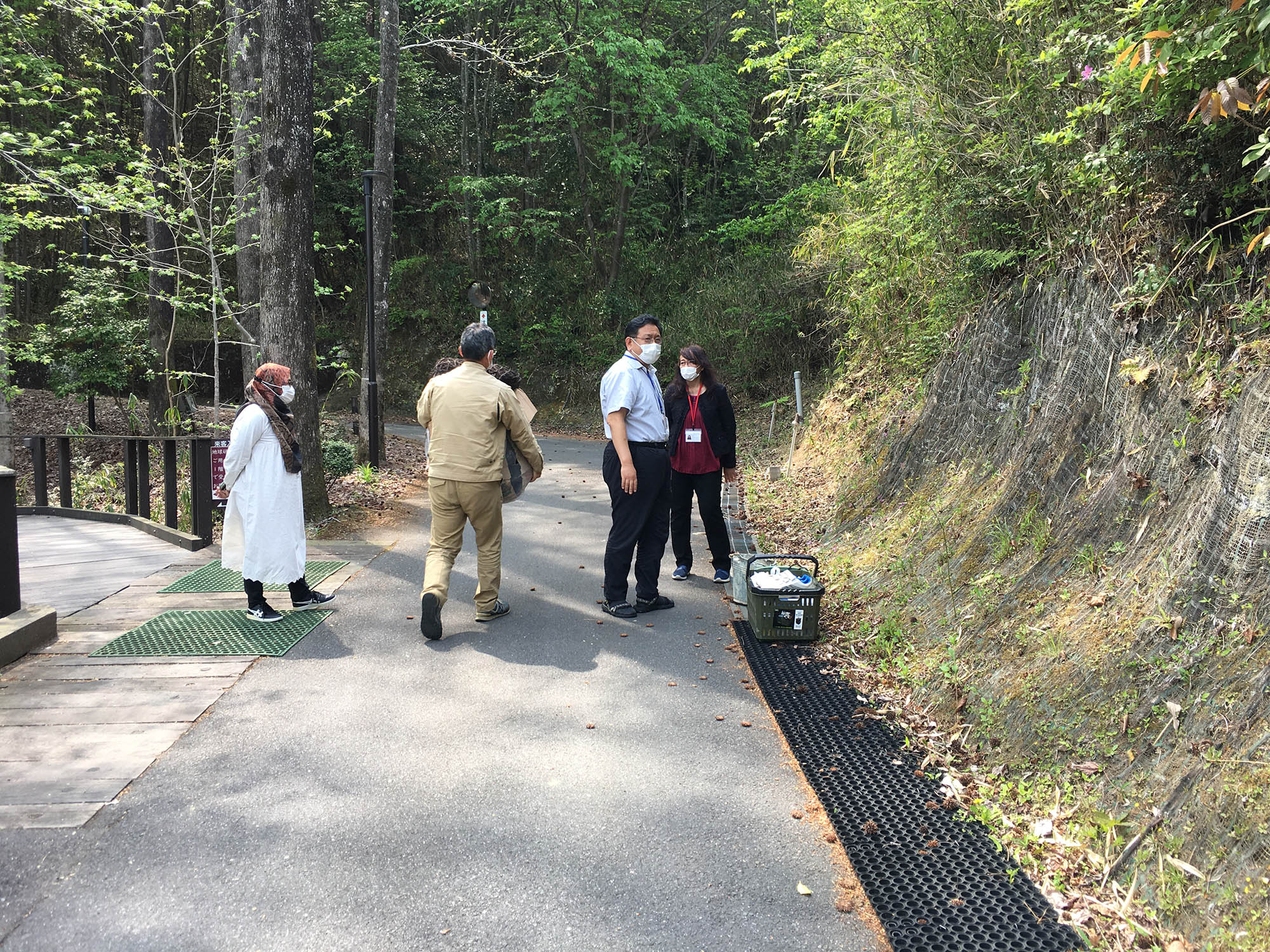
Members of SRIREP Project 
Members of SRIREP Project 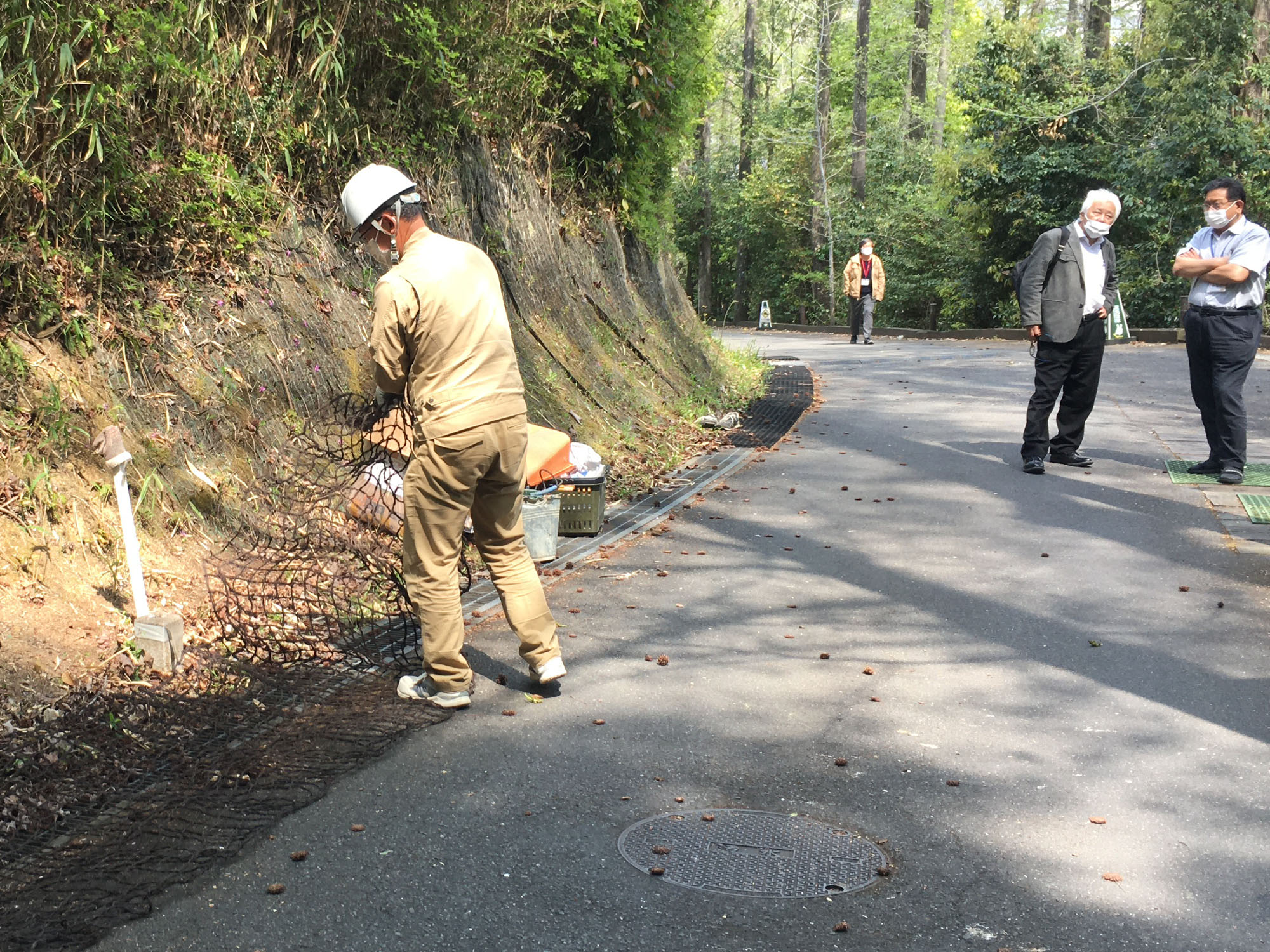
The recorded photos of Mr. Tsutomu Yamaguchi's fiber net installation stepsutomu Yamaguchi 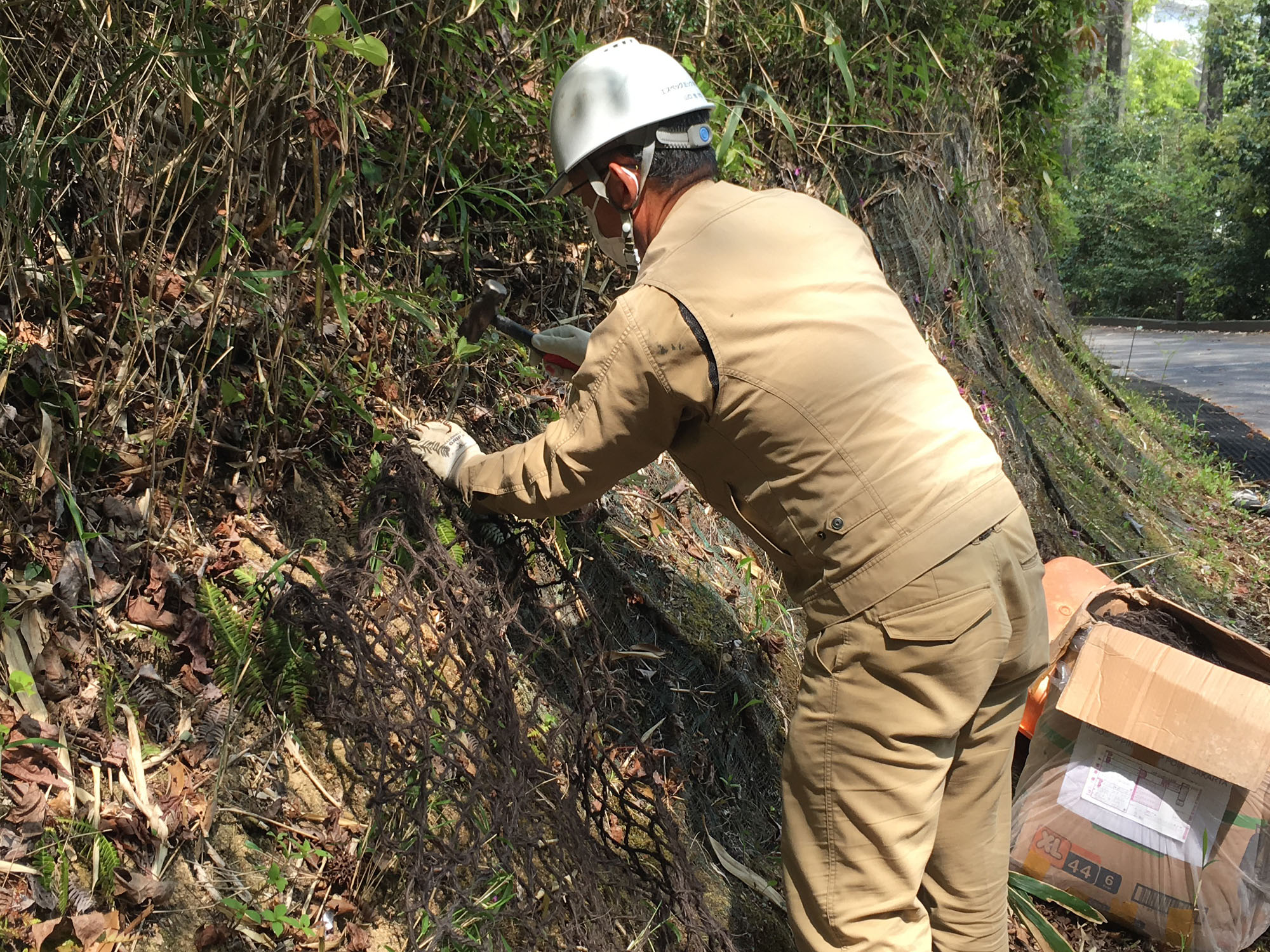
The recorded photos of Mr. Tsutomu Yamaguchi's fiber net installation steps 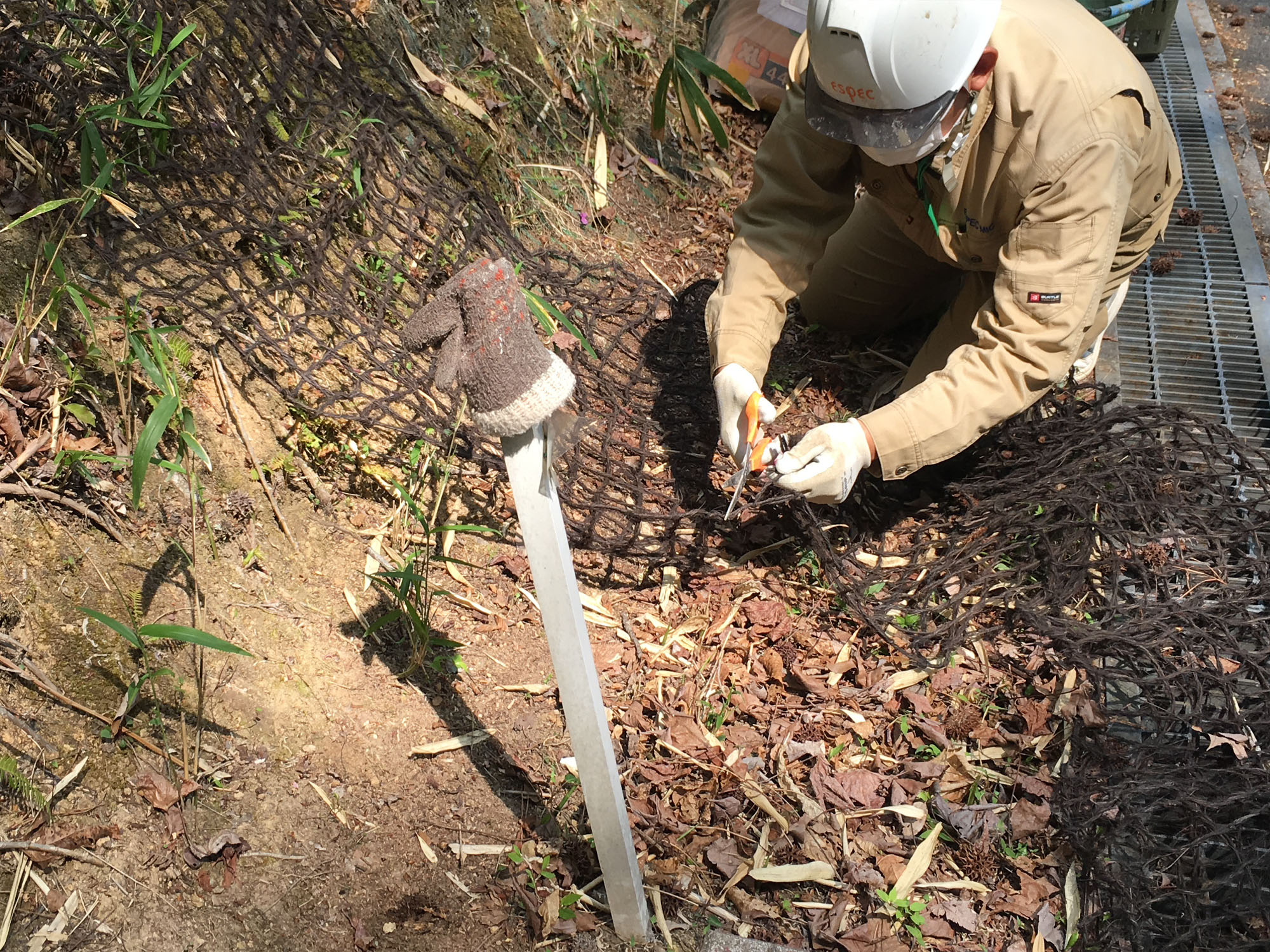
The recorded photos of Mr. Tsutomu Yamaguchi's fiber net installation steps 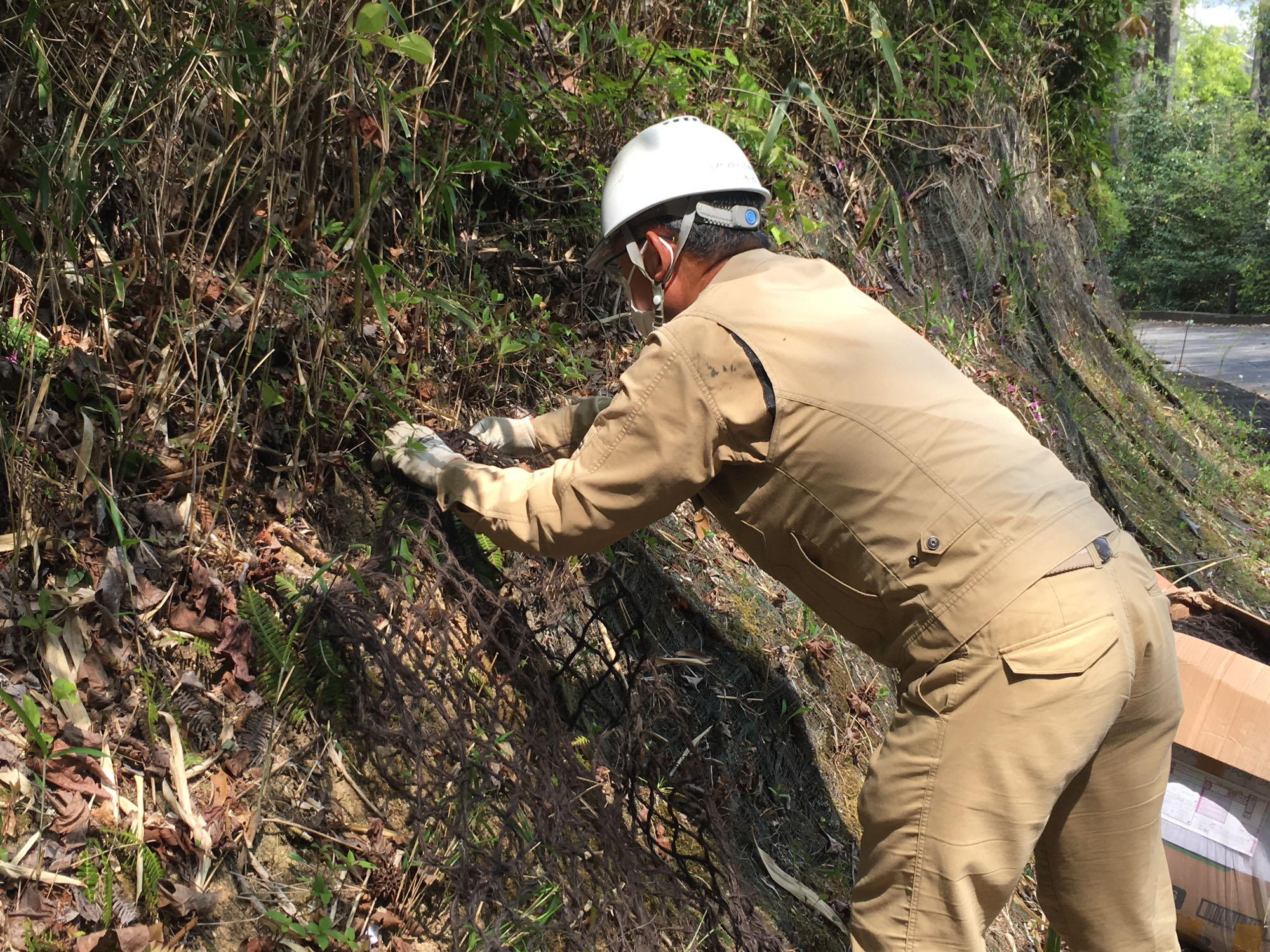
The recorded photos of Mr. Tsutomu Yamaguchi's fiber net installation steps 
The recorded photos of Mr. Tsutomu Yamaguchi's fiber net installation steps 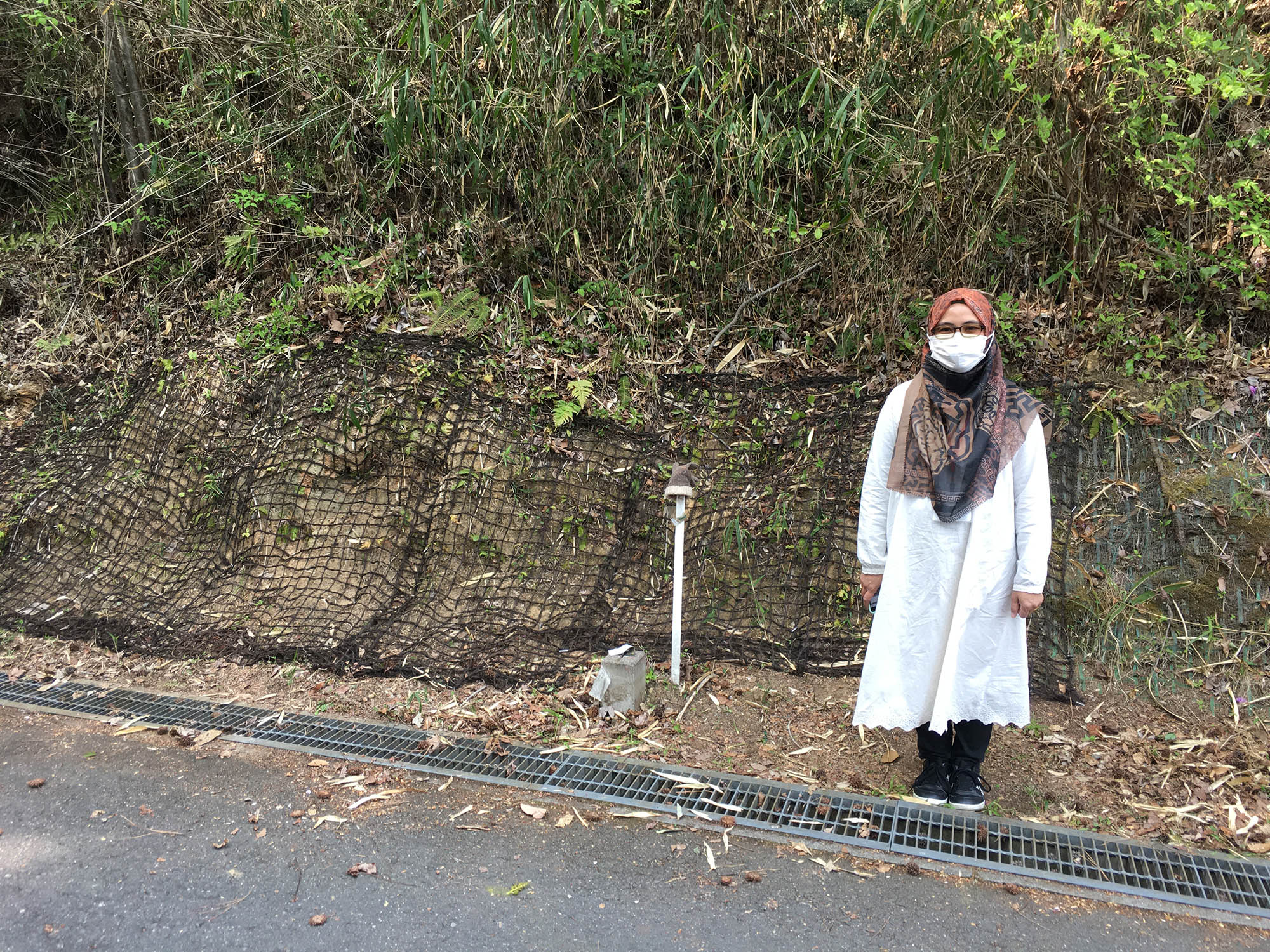
After the installation of natural fiber net
July 2022
Cultivating Bitter Gourd using Sugar Palm Fiber Net- Students of Nanryo Junior High School are making the Green Curtain
English Translation
Ryoutan Nichinichi Shinbun published the news of Nanryo junior high school students cultivating bitter gourd plants as green curtains, where the sugar palm fiber net made by the natural fiber research group was used as the net trellis.
Cultivating Bitter Gourd using Sugar Palm Fiber Net-
Students of Nanryo Junior High School are making the Green Curtain
The Fukuchiyama Environmental Council (representative: Mr. Tetsuya Takura) has recently held a “Global Warming Countermeasures and Green Curtain Planting Class” for third-year students at Nanryo Junior High School in Minamioka-cho, Fukuchiyama City, Kyoto Prefecture. With the guidance of Ms. Manami Tsuchida of Espec Midori School, the students worked on making green curtains using bitter gourd.
It is hoped the younger generation will learn the specific measures to prevent global warming and increase their willingness to take action. There was also a lecture by the President, Mr. Hiroki Kihara, of Tantan Energy Co., Ltd., a company that handles electricity derived from renewable energy.
A total of 175 people from 5 classes gathered and listened to the lectures, and planted the bitter gourd. Ms. Tsuchida explained that the “green curtain” that uses climbing plants blocks the sunlight. She said, “The place with the curtain is about 7 degrees cooler than the surroundings,” and also taught the students requirements such as watering the bitter gourd plants regularly both in the morning and evening, applying fertilizer for 10 days, and pinching the plants.
After listening to Ms. Tsuchida’s explanation, the students were divided into 3 or 4 groups to put soil in the polystyrene foam boxes and plant the bitter gourd seedlings. Koharu Tsuchida smiled and said, “I was surprised to find that the temperature drops very much just by planting bitter gourd.” I want to make a thick and cool curtain. ”
The original article is published by Ryoutan Nichinichi Shinbun at the following URL
https://www.ryoutan.co.jp/articles/2022/07/93516/
Bridge meeting between Indonesia and Japan
On July 10, 2022, as part of the assessment of the usage of Palm fiber net in Japan, group members of Palm Fiber Net participated in an online meeting to discuss the use of the internet in the city of Seiyo, as reported by fiber net customers.
The discussion is summarized as follows.
- The net manufacturers (Pak Ima Group is comprised of three women and two men) are eager to continue creating nets for economic reasons.
- Prof. Masayuki Sakakibara is interested in purchasing more nets from the IMA san group and would also want them to manufacture mats made from natural fibers/leaves.
- The problem with the sustainability of producing locally created products from the fiber is how to increase production and find local buyers/users.
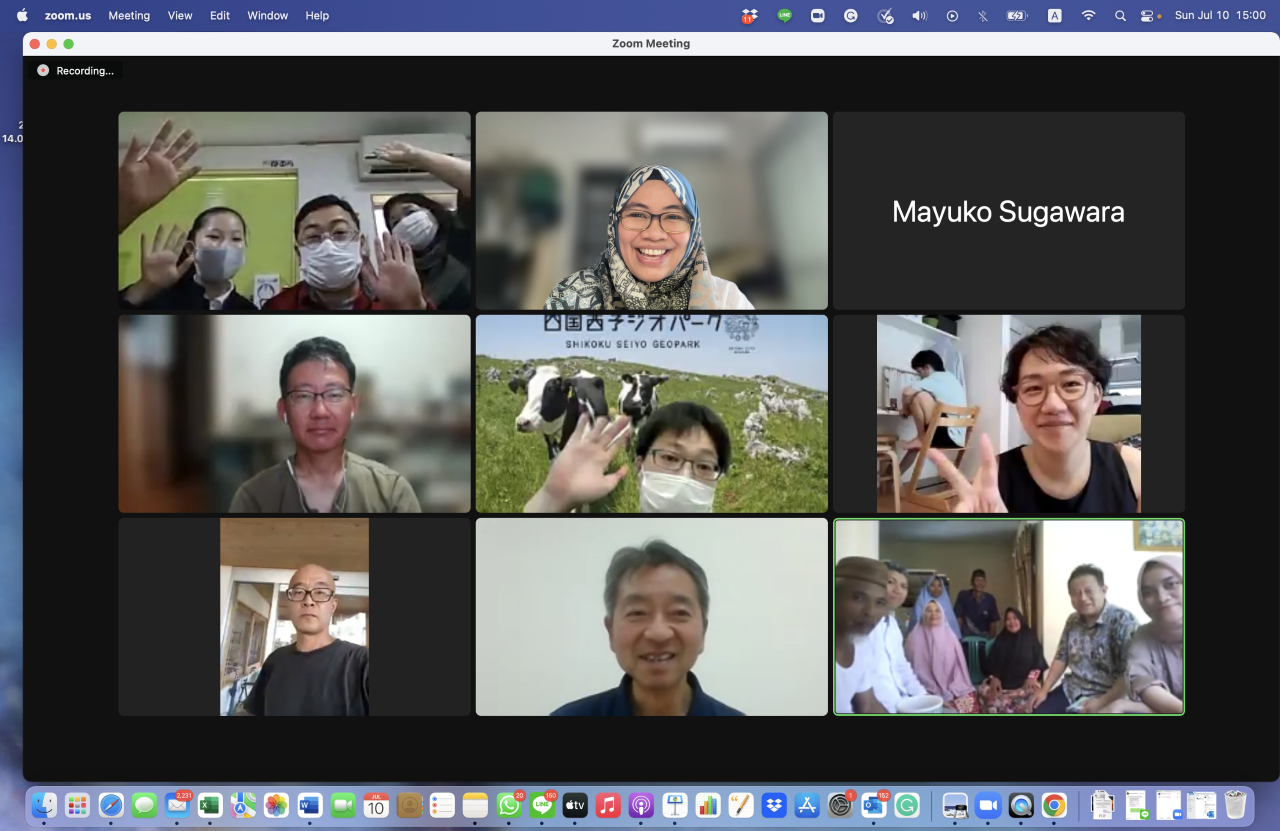
January 2023
Installing of Amongo as a plafond at the place owned by the 4th of vice-rector of UNG.
February 2023
Installing palm fiber nets as green domes at elementary school no 4 of Central Suwawa (2023.2.7-8)
Installing Amongo as the geotextile to prevent soil erosion at Bonebolango regency (Taman Taqwa) between the Islamic center and the house of the regent of Bonebolango (2023.2.5)
Installing palm fiber nets to prevent soil erosion at Bonebolango regency (Taman Taqwa) between the Islamic center and the house of the regent of Bonebolango (2023.2.5)
Downloads / ダウンロード
Pamphlets are available to download in two different language versions.
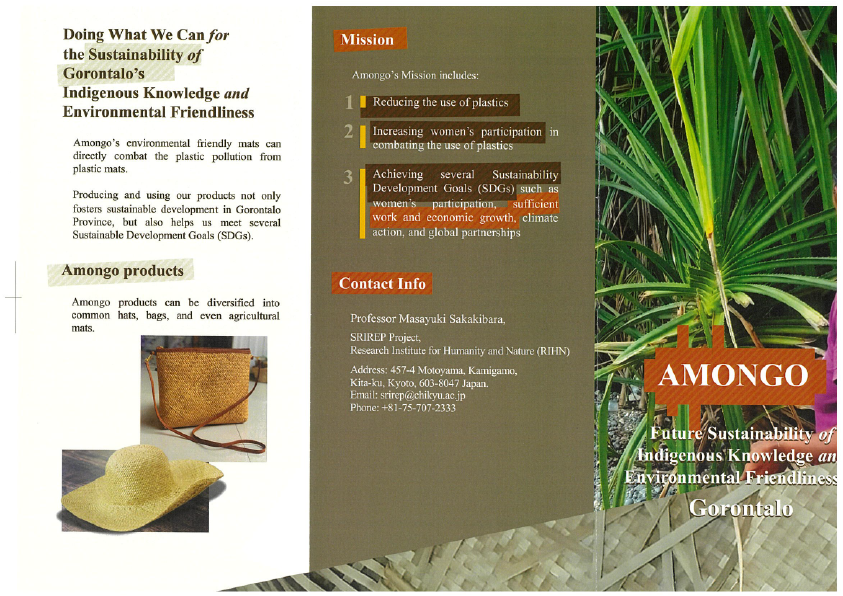
Downloads / ダウンロード
Amongo’s pamphlets are available to download in two different language versions.


